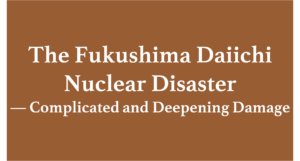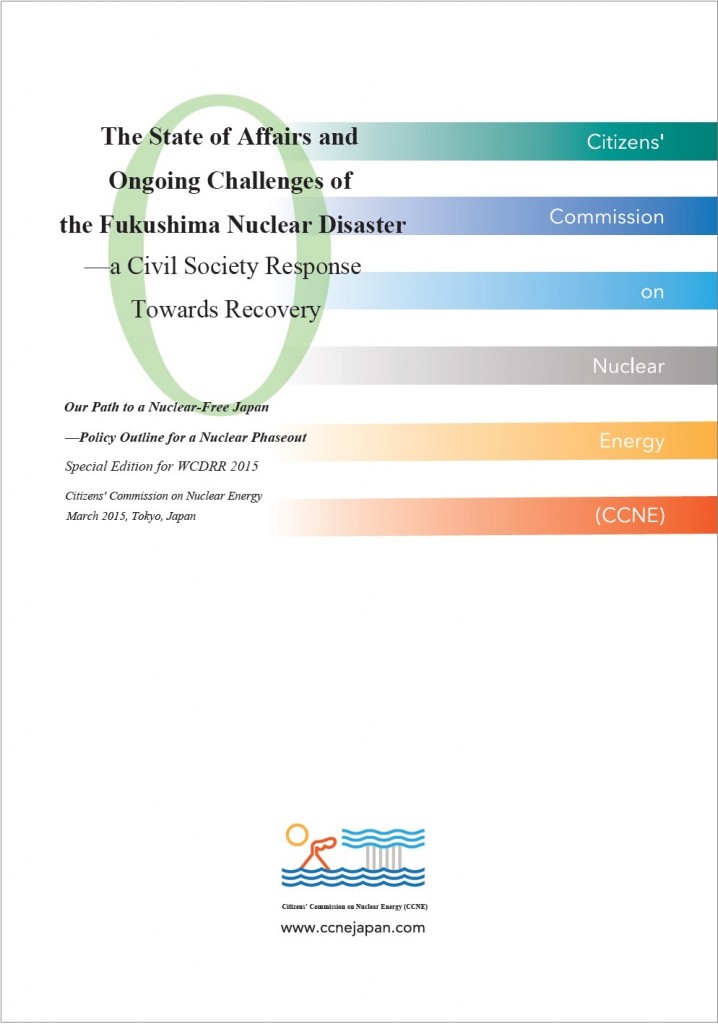6. Policy to Extend the Life of Nuclear Power Plants Anyhow and Everyhow
![]() Fifth Strategic Energy Plan
Fifth Strategic Energy Plan
In the 5th Strategic Energy Plan, approved by the Cabinet in July 2018, nuclear power plants, along with coal-fired and hydroelectric power generation, were designated “base load power supply“.
The present state of nuclear power generation in Japan is as follows.
- Of the 54 reactors that existed before March 11, 2011, 24 are to be decommissioned*1, and of the remaining 30 reactors, 15 have received permission from the Nuclear Regulation Authority (NRA) to alter their construction to meet regulatory requirements, and 9 of them have been restarted (As of December 2019).
- Many reactors have reached their 40-year operating limit; four of them have already been in operation for more than 40 years.
- An increasing number of operators have decided to decommission their reactors, as the cost of safety measures for extending the operation period to 60 years would be enormous.
- The ratio of nuclear power generation in fiscal 2018 was about 6% of total power generation.
It is impossible to realize the “20 to 22% nuclear power generation” in 2030 on which the Strategic Energy Plan is based. Problems with the Energy Plan were pointed out in the following statement by the Citizens’ Commission on Nuclear Energy in May 2018.
- We should face up to the fundamental problems of nuclear power generation and aim for zero nuclear power generation.
- The safety of nuclear power plants cannot be guaranteed by a review based on the new regulatory standards
- The true cost of nuclear power generation is high and there are various hidden costs and risks
No effort has been made to listen to and reflect the opinions of citizens in the decision-making process - The notion that nuclear power is “base load power supply” is obstructing power system reform
See also the statement “The Long-term Strategy of the Paris Agreement should be premised on the realization of a zero-nuclear society” on June 2018.
![]() Full liberalization of the electric power market
Full liberalization of the electric power market
Since the full liberalization of the electricity retailing market in fiscal 2016, many retail electricity companies have been established. As of December 2019, there were over 630 such companies. The switchover from the major electric power companies before liberalization (the former general electricity utilities) to new electric power companies is now proceeding. (New electric power companies now have an approximately 13% share of electricity sales).*2
The Ministry of Economy, Trade and Industry is promoting so-called “nuclear power plant life extension policies” in order to maintain nuclear power generation despite the liberalization of the electric power industry. In particular, the revision of the Ordinance for Enforcement of the Electricity Business Act (September 2017), incorporated a system which included the “recovery of compensation costs” and the “recovery of costs for the facilitation of decommissioning of reactors” in the “consignment fee,” which remains as a regulation fee (a fee levied by law) in the power transmission and distribution business, and which will still be levied by regulation after 2020.
In addition, the Special Committee on the Nuclear Damage Compensation System of the Atomic Energy Commission discussed limiting the liability of nuclear operators, but in the end, the responsibility remained unlimited and the increase in the compensation amount was postponed*3.
The problem of the nuclear damage compensation system was explained in the following statement of the Citizen Commission on Nuclear Energy.
- The amount to be prepared by nuclear operators for compensation, 120 billion yen, is insufficient and should be around 12 trillion yen.
- The provision stating the objective of the Act on Compensation for Nuclear Damage as “To contribute to the sound development of the nuclear energy business” should be deleted.
- The provisions that make it impossible to obtain reimbursement from persons concerned other than nuclear operators should be deleted, since the provisions do not conform to the principle of product liability
- The obligation to protect victims should be imposed on the state.
Compensation for damage is a basic framework for providing full relief to victims in the event of an accident. Despite the Fukushima nuclear accident revealing that the existing framework was completely inadequate, the government has been promoting the restart of nuclear reactors without a fundamental revision of the compensation framework.
![]() Electric power system reform
Electric power system reform
As part of the power system reform toward 2020, the legal separation of power transmission and distribution is being carried out to transform the power transmission and distribution businesses only into separate corporations with a capital relationship, and improvements in the power market are being implemented. As new mechanisms to prolong the life of nuclear power plants, a “base-load market,” a “capacity market,” and a “non-fossil value trading market,” for which the implementation schedule has already been decided, are now under consideration.
The former general electric utilities (in other words, nuclear operators) have an overwhelming advantage in these electric power markets, since they supply to the majority of consumers and own the vast majority of the operable power generating capacity. As a result, the fairness of electric power transactions will be undermined, and it is possible that the reason for the existence of market transactions will be compromised.


